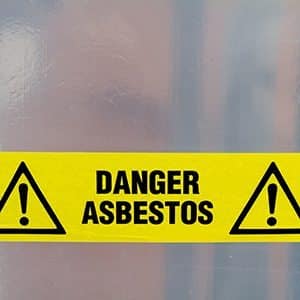Asbestos is a naturally occurring mineral that can be found anywhere in the world. It essentially occurs naturally in fiber bundles, which can be separated into single asbestos fibers. These fibers are resistant to chemicals, heat and fire and do not conduct electricity. As a result, many manufacturing and construction companies preferred products containing asbestos for their line of work. Despite asbestos mining and usage taking place for years, its exposure has only recently been identified as a health hazard.
Asbestos exposure is commonly associated with a form of cancer called mesothelioma. Our mesothelioma lawyers can help you file a lawsuit to get compensation to help with the medical expenses associated with the exposure.

Mining and commercial use of asbestos commenced in the 19th century, and grew earnestly during the Second World War. Its popularity, however, was short-lived as the United States Consumer Product and Safety Commission (CPSC) banned its use in various products (gas fireplaces as well as in wallboard patching supplies) in the 1970s; citing release of excessive amounts of asbestos fibers into the environment. Read more here about the bans. In 1989 still, the Environmental Protection Agency (EPA) added to earlier laws by banning any new asbestos use. However, the law still allowed the continuation of all asbestos uses that were in existence prior to this date. Therefore, scores of people remain exposed to asbestos and its effects, although not as extensively as earlier populations.
Asbestos products include:
In the construction industry, asbestos fibers are used in:
All of the above uses are legal as long as the asbestos fibers are coated and covered, with nil chance of exposure under normal conditions.
According to Occupational Safety and Health Administration (OSHA) there really isn't a safe exposure to asbestos. In the attempt of keeping humanity safe from its effects, EPA and Occupational Safety and Health Administration (OSHA) have come up with regulatory laws against asbestos use and a set concentration limit of this lethal mineral. While exposure to asbestos cannot be totally eliminated, the set rules and guidelines help keep asbestos exposure to a minimum. Sadly though, in spite of all the attention accorded asbestos and its effects, there are still people and workers out there who remain in the dark concerning the harm caused by asbestos exposure.
Asbestos exposure carries extreme health risks, most of which remain untreatable and incurable. Common diseases resulting from exposure to asbestos include:
pleural mesothelioma - affects the lining of the lungs
pericardial mesothelioma - affects the lining of the heart
Asbestos-related ailments victims are usually people who've worked for a long time in professions where asbestos was used. Their families are also at risk due to secondary asbestos exposure. Various job sites bear a history of this carcinogen's exposure including but not limited to shipyards, chemical and power plants and oil refineries. Occupations with greater levels of asbestos exposure include:
Unexpectedly, teachers and educational administrators are also at the risk for asbestos exposure. This is due to the fact that they spend most of their time in the same building, and it can be an ancient school. Remember that asbestos was used in schools as a protective measure to keep fires from spreading.
Symptoms of illnesses due to asbestos don't appear immediately, it can take up to fifty years after your first exposure, commonly known as the "latency period." When the Twin Towers collapsed on 9/11, Manhattan residents (1.5 million) were unfortunately exposed to airborne asbestos. The effects of this exposure may not yet be discovered, since it can only be ascertained after several decades after the incident occurred. Meanwhile, Mesothelioma or Asbestosis could be quietly bidding its time to develop and show its symptoms. If you or someone you know has developed health issues due to asbestos exposure, it is of crucial importance that you seek legal counsel so as to know your options. Banville Law is ready to assist you.